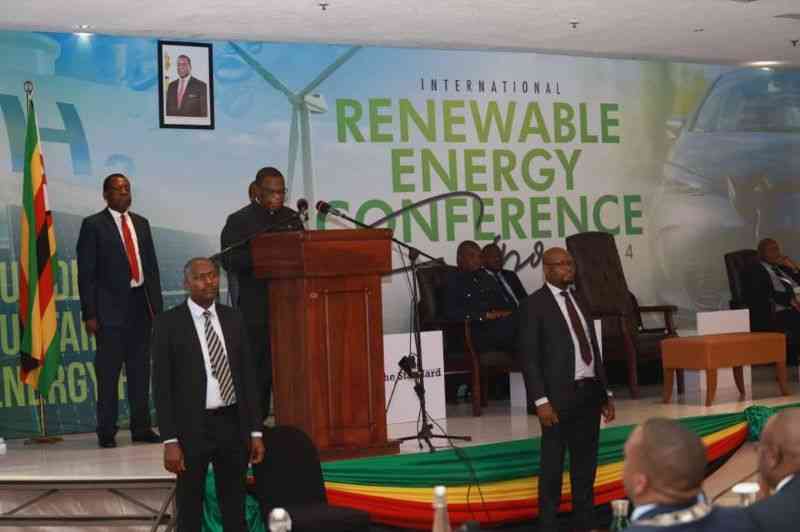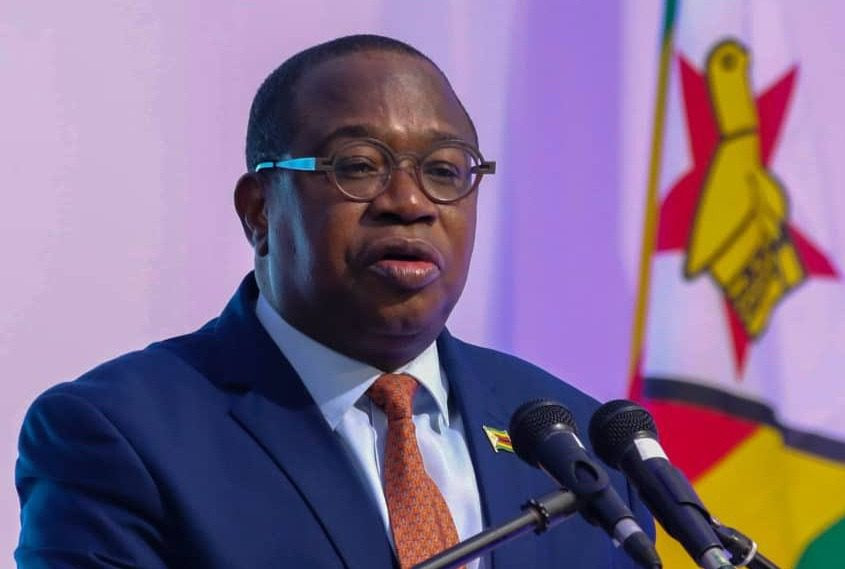
President Emmerson Mnangagwa yesterday said the Accelerated Partnership for Renewables in Africa (APRA) will help double Zimbabwe’s energy mix at a time the government is moving to fine tune its policies to promote the adoption of green energy.
APRA is an initiative founded at the African Climate Summit held in September 2023 by Kenya, Ethiopia, Namibia, Rwanda, Sierra Leone, and Zimbabwe, with support from Denmark, Germany, the United Arab Emirates, and International Renewable Energy Agency to accelerate energy transitions in respective countries.
In a speech read on his behalf by Vice-President Constantino Chiwenga at the just-ended fifth edition of the International Renewable Energy Conference and Expo in Victoria Falls, Mnangagwa said challenges posed by climate change demanded decisive action by governments.
“Zimbabwe, being one of the founding members of the Accelerated Partnership for Renewables in Africa, is collaborating and partnering with other African countries in the implementation of sustainable energy programmes and projects,” he said.
“This is set to double our national energy- mix, while contributing to regional energy security and investment opportunities that leaves no one and no place behind.
“The multi-pronged challenges of climate change coupled with the urgent need to industrialise our country demand you to be bold and decisive in the type of interventions and investments you make to close the energy gap.”
At the well-attended conference, renewable energy around electric vehicles, solar, wind and hydrogen were discussed as possible ways the country could move towards green energy.
Mnangagwa said it was important that the country was not left behind as the rest of the world was moving to adopt greener energy.
- News in depth: Zimbabwe’s push for shift to renewable energy sources gathers momentum
- News in depth: Zimbabwe’s push for shift to renewable energy sources gathers momentum
- No hope for Batoka 50 years on . . .Zimbabwe, Zambia just rotating around, says Gata
- No hope for Batoka 50 years on . . .Zimbabwe, Zambia just rotating around, says Gata
Keep Reading
“Conferences such as this and other platforms should critically examine the ongoing transition by incorporating the associated technological and socioeconomic dimensions,” he said.
“Aspects related to the human capital development needs, in terms of skills and competencies that must be nurtured, should be given due attention.
“As we march towards realising energy self-sufficiency, the second republic is increasing the share of renewables as we migrate from non-renewable sources.
“Going into the future, we shall continue to prioritise the maintenance and rehabilitation of existing energy infrastructure over and above new green-field energy projects.”
Mnangagwa said the upgrading of the country’s energy generation, transmission and distribution networks as well as other infrastructure was also being scaled up.
“In view of the critical relationship between energy, and sustainable socio-economic development, I call upon the sector and in particular, the Ministry of Energy and Power Development, to enhance energy conservation and efficiency awareness,” he added.
“In addition, the provision of sound technical and professional services to investors and all stakeholders in the sector, must be guided by the ease of doing business work ethic advanced by my administration.
“As ministries, departments and agencies in the energy sector, you are challenged to facilitate and not to frustrate partners and investors.”
He urged the energy sector to shift the discourse so that the country charted greener development pathways that did not compromise environmental biodiversity and the country’s pressing need to modernise and industrialise Africa.
“On its part, my government will continue to fine-tune policies and heighten the implementation of flagship projects to manage the uncertainties associated with climate change,” Mnangagwa added.
“The adage goes; ‘Alone one can go fast; but together, we can go far’, hence, our unity of purpose and determination to build greater climate change resilience in the energy sector should result in increased collaboration among stakeholders and investors.
“Let us work concertedly to achieve net zero targets as outlined in the Nationally Determined Contributions.”
Zimbabwe experiences a power deficit of 500 megawatts (MW) to as much as 1 000MW owing to mostly climate change.
The renewable energy conference is organised by The Standard in collaboration with the Power and Energy Development ministry.
The Standard is published by Alpha Media Holdings (AMH) alongside NewsDay and Zimbabwe Independent. AMH also operate teleradio stations Heart&Soul.










